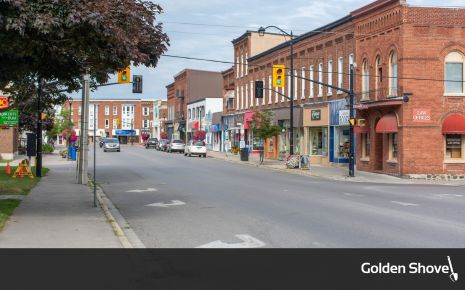Economic Development Strategies for Attracting Businesses to Rural Areas

17 Jul 2023
News, Workforce
Rural areas offer unique opportunities for businesses to thrive, with lower operating costs, access to natural resources, and a strong sense of community. However, attracting businesses to rural areas can be a challenge for many economic developers. Here are some strategies to get you started.
Identifying and Targeting Businesses
One of the first steps in attracting businesses to a rural area is identifying the types of businesses that would thrive in the region. Economic developers can start by researching the local economy, including the already present industries and the resources available in the area. This information can help identify gaps in the market and areas of opportunity for new businesses.
Once potential industries have been identified, economic developers can target businesses in those industries using a variety of tactics. One effective strategy is to attend industry conferences and events where developers can network with potential investors and showcase the benefits of doing business in the area. Economic developers can also partner with local business associations or trade organizations to promote the area to businesses in their industry.
Using Incentives to Attract Businesses
Incentives can be a powerful tool for attracting businesses to rural areas. Economic developers can offer a range of incentives to make the area more attractive to potential investors, such as tax breaks, grants, and low-interest loans. These incentives can offset business costs in rural areas and provide a competitive advantage over other locations.
In addition to financial incentives, economic developers can also offer non-financial incentives such as access to natural resources or partnerships with local educational institutions. For example, a rural area with a large agricultural sector may provide businesses with access to fertile land or partnerships with local universities to support research and development in agribusiness.
It is crucial for economic developers to carefully consider the types of incentives they offer and ensure that they are sustainable for the long term. Incentives that are too generous or unsustainable can lead to a race to the bottom among competing locations and can ultimately harm the local economy.
Marketing the Area Effectively
Marketing is critical for attracting businesses to a rural area. Economic developers can use various marketing tactics to showcase the benefits of doing business in their region. One effective strategy is to create a targeted marketing campaign highlighting the area's unique advantages, such as its low operating costs, access to natural resources, and quality of life.
Developers can also create a website or social media presence that promotes the area as a great place to do business. The website should include information on the local economy, available incentives, and the benefits of living and working in the area. Economic developers can also partner with local tourism agencies to promote the area as a great place to live and work.
In addition to online marketing, economic developers can participate in trade shows, industry events, and other networking opportunities to promote the area to potential investors. Attending these events can help developers connect with potential investors and showcase the benefits of doing business in their rural area.
Building a Supportive Business Environment
While incentives and marketing are important, creating a supportive business environment is also critical for attracting businesses to a rural area. Economic developers can work with local governments, chambers of commerce, and other organizations to create a business-friendly environment that supports growth and innovation.
One key strategy is to streamline the permitting and zoning processes for businesses, making it easier and more affordable to get started. Economic developers can work with local officials to create a clear and consistent process for obtaining permits and approvals. They can provide resources and support to help businesses navigate the process.
Another important factor is access to infrastructure and resources. Economic developers can work with local utilities and service providers to ensure that businesses have access to high-speed internet, reliable energy, and other critical resources. This can be particularly important for businesses relying on technology or transporting goods and materials.
Finally, economic developers can work to create a strong support network for businesses in the area. This can include networking events, mentorship programs, and other resources to help businesses connect with each other and access the support they need to grow and thrive.
Collaborating with Local Stakeholders
Collaboration is vital for attracting businesses to a rural area. Economic developers can work with various stakeholders, including local government officials, community organizations, and business leaders, to create a cohesive strategy for economic development.
One effective strategy is to create a local economic development organization that brings together stakeholders from across the community. This organization can help coordinate efforts, share resources, and ensure everyone works towards a common goal.
Economic developers can also work with local educational institutions, such as community colleges or vocational schools, to create training programs that support the needs of local businesses. These programs help create a skilled workforce well-suited to the needs of businesses in the area and make the area more attractive to potential investors.
Finally, economic developers can work with local tourism organizations to create a comprehensive strategy for promoting the area. By highlighting the unique attractions and amenities of the area, such as natural beauty, outdoor recreation opportunities, and cultural events, economic developers can help make the area more attractive to businesses and potential investors.
More Topics

The Impact of Social Media on Marketing & SEO Strategies for Economic Development Organizations
Jul 10 2023-launches-new-website-with-valuable-information-to-the-public.jpg)



